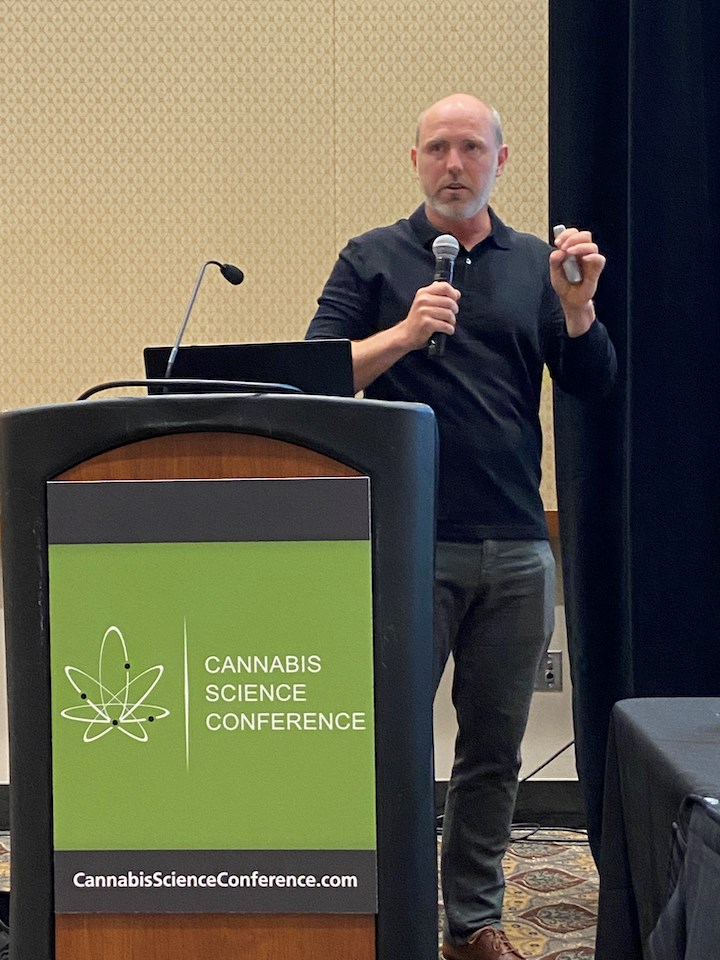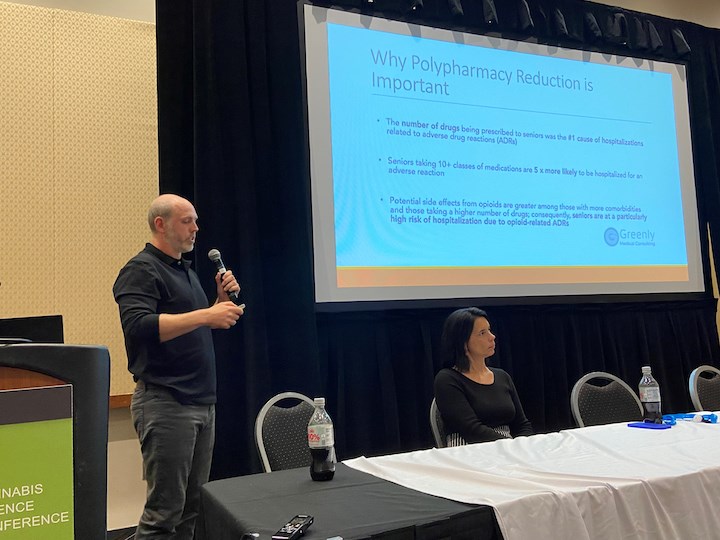Early findings of a grassroots study exploring the impacts of cannabis on patients living with dementia are earning international attention, says Dr. Blake Pearson.
“It’s really great, community research that’s happening,” said Pearson, who, in partnership with Lambton College and Steeves & Rozema Nursing Homes, recently wrapped up a six-month study investigating the impact of cannabinoid therapy on dementia symptoms, behaviours and even caregiver distress.
“That’s the neat part — to get a grant and be able to do the research right here, and then have it so well-received internationally — we are all pretty pumped.”
Pearson, a Corunna native, is internationally recognized for his work in cannabis medicine and efforts to legitimize cannabinoid therapy as a safer alternative to harmful opioids and anti-psychotic drugs.
In the fall, Pearson, along with Lambton College's lead researcher, Dr. Mikelle Campbell-Bryson, co-presented their work: “Exploring cannabinoid therapy as a safer alternative for dementia symptom management,” at the Cannabis Science Conference in Providence, Rhode Island.

“It was a true, collaborative approach,” Pearson said of the study, which used a ‘mixed methods’ approach, involving both quantitative and qualitative data.
“Not only were we measuring the effects of cannabis on mood and dementia behaviours, but the ‘mixed methods’ part was the caregiver involvement,” Pearson explained. “So we got their responses and their feedback, and that was kind of the beauty of the study: we had what we were seeing in the home, objectively, but also, what the caregivers were seeing.”
The study — conducted thanks to a three-year, $360,000 research grant from the National Sciences and Engineering Research Council of Canada (NSERC) — involved 20 long-term care patients, and an additional 20 patients who served as a control group.
“We saw the number of medications get reduced — the harmful ones like antipsychotics, and benzodiazepines — so that was nice to see,” said Pearson, who donated $100,000 of his own funds to the project. “A lot of the patients were able to come off multiple medications.
“So it was cool, because we saw the meds coming down, and then the families reporting positive outcomes, and in their own words.”
The next step is having the work published in a medical journal, explained Pearson, who continues his cannabinoid medicine practice — treating everyone from kids with seizures and autism, to adults with dementia, chronic pain, multiple sclerosis, chemotherapy-induced nausea and vomiting, and others.
He’s also a vocal patient advocate for attaining wider insurance coverage for medicinal cannabis.
“Still, we are fighting — we’ve got a lot of people on disability that want to come off their opioids, but their opioids are covered, and if they want to switch to CBD, they’d have to pay out of pocket, and they cant afford it because they get so little.”
